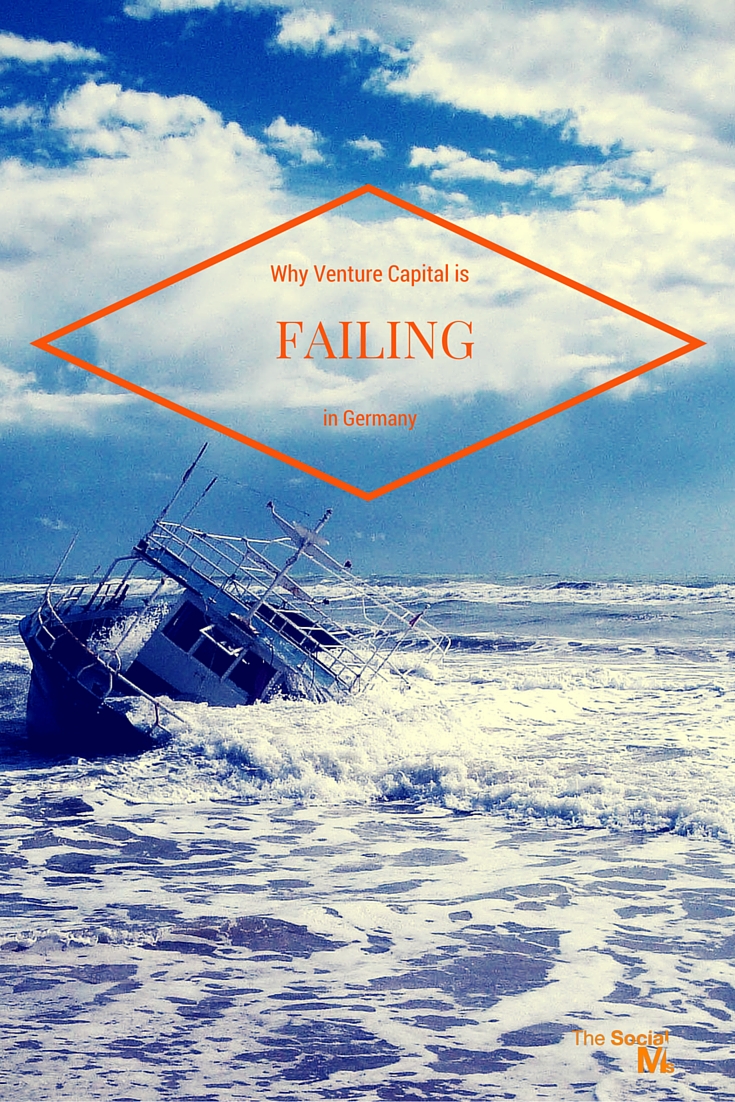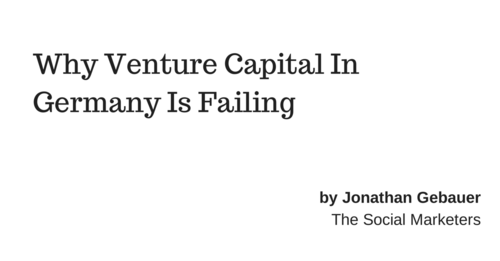by Jonathan Gebauer (@jogebauer)
Recently I sat in a talk given by a VC employee comparing the availability and performance of Venture Capital in Berlin to London and the Silicon Valley. While Silicon Valley, of course, took the lead by far, he came to the conclusion that Berlin and London were roughly the same in ranking. The bigger US Funds would be more likely to invest in London, but Berlin (and Germany) would make up for that with the availability of small funds and newly created Venture Capitalists.
This might be true.
Venture Capital however in Germany is failing, totally and completely. At least in my opinion.
Here is my bold claim:
Before you read on - we have various resources that show you exactly how to use social networks to gain massive traffic and leads. For instance, check out the following:
FREE Step-by-Step Twitter Marketing GuideFREE Pinterest Marketing Ebook
Small VC’s with even smaller funds, founded by formerly successful entrepreneurs with a couple of millions in the bank don’t help much. They will never become a replacement for the big funds. They will not create a climate that is right for innovation. They will only create a climate for companies that do more of the same.
Why?
 Because they don’t have the funds necessary to take risks. They don’t have the funds that are necessary to build scalable companies and to scale business models. They don’t have the experience necessary outside of their own field of expertise.
Because they don’t have the funds necessary to take risks. They don’t have the funds that are necessary to build scalable companies and to scale business models. They don’t have the experience necessary outside of their own field of expertise.
For a VC, and investors of any kind, innovative startups are a risky business. The biggest innovations offer the biggest potential for high returns, but they also are the riskiest investments. A small VC fund is not able to invest in this kind of risks. This kind of fund is not able to mitigate this kind of risk by making enough investments to make the fund operate at a low enough risk on the whole.
In fact, investing in innovation, companies that do something different without a safety net, fallback scenario or highly valuable assets would probably be not just risky, it would be reckless.
In the long run, it would kill the investor.
The solution to this are copycats, non-scalable business models and investments from the outside, which do happen, but by far not often enough.
Don’t believe me? Look at the fund sizes in Germany, and compare them with the Silicon Valley. Average fund size in the valley is multiple billions while in Germany you are hard pressed to locate funds and VCs with access to more than 50 to 100 millions. I know these numbers sound big. But for scalable and innovative companies, you often need to invest a couple of 100,000 in the seed phase and 500,000 or even many times more at the Series A stage. This stage is very often not a profitable stage.
Now, this is simple math: With a fund of 50 million, you can make 25 – 50 series A investments. Let’s say you take a relatively safe approach to investing and expect 25% 30% of companies to become profitable, going for relatively quick exits and hoping to achieve break even for the fund early: You will probably get 6 to 14 companies to break even, and will expect to exit them at an average rate of 10x your investment. If all goes well, you will make 60 million. If it doesn’t go well, and only two more companies than expected fail, you might already lose money.
Hey, before you read on - we have in various FREE in-depth guides on similar topics that you can download. For this post, check out:
FREE workbook: CREATE AWESOME BLOG POSTSFREE Beginner's Guide: START A BLOG
If you take a more risky approach, expecting only 10% of companies to fly, but want these to fly high… You are busted.
The result from this: The next Facebook might get founded in Germany but will probably not get funded in Germany.
Fail.
This article was proofread and edited by myself with the help of Grammarly. If you are blogging in English and cannot afford a professional editor, Try Grammarly Now! It rocks.

